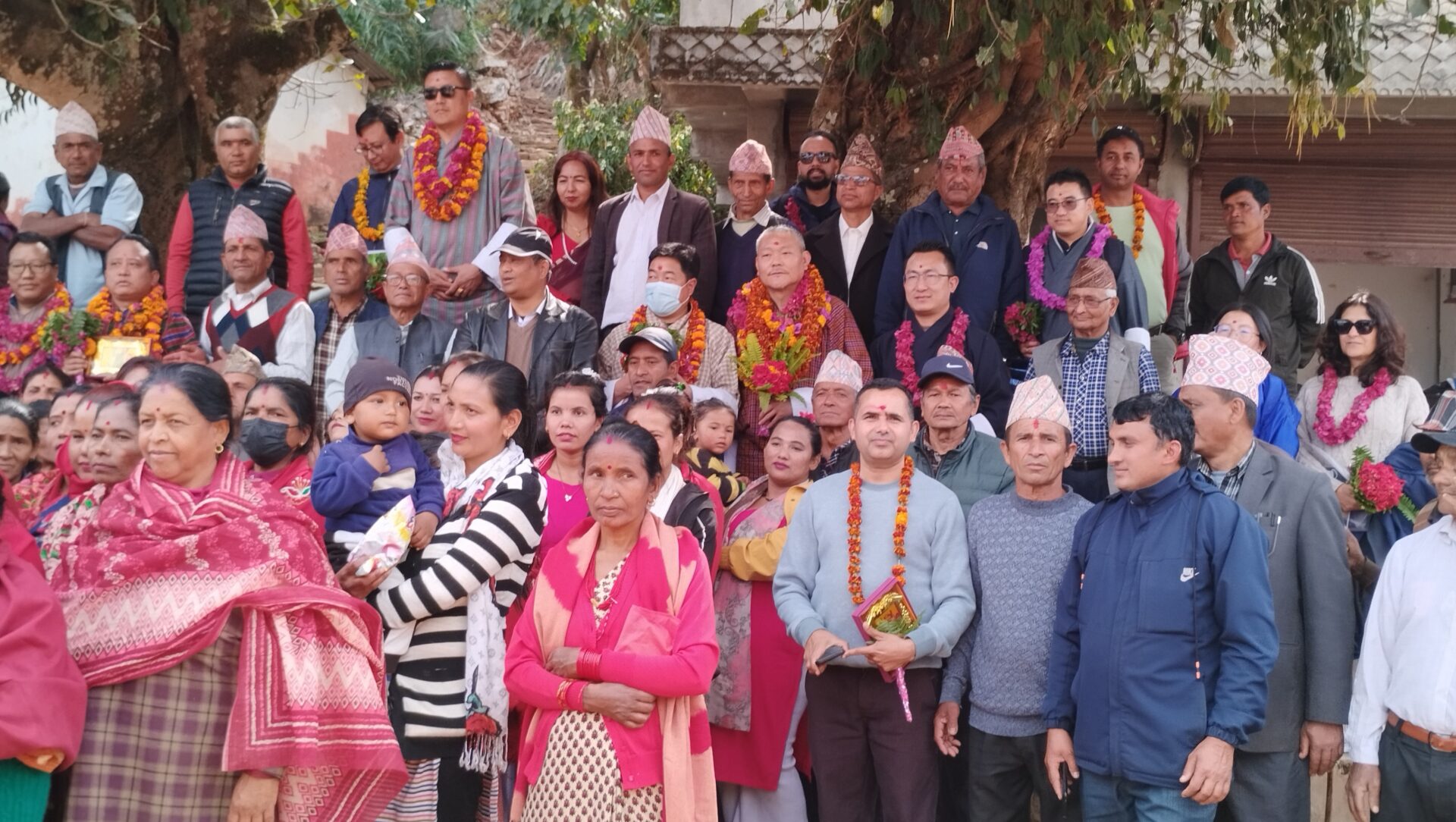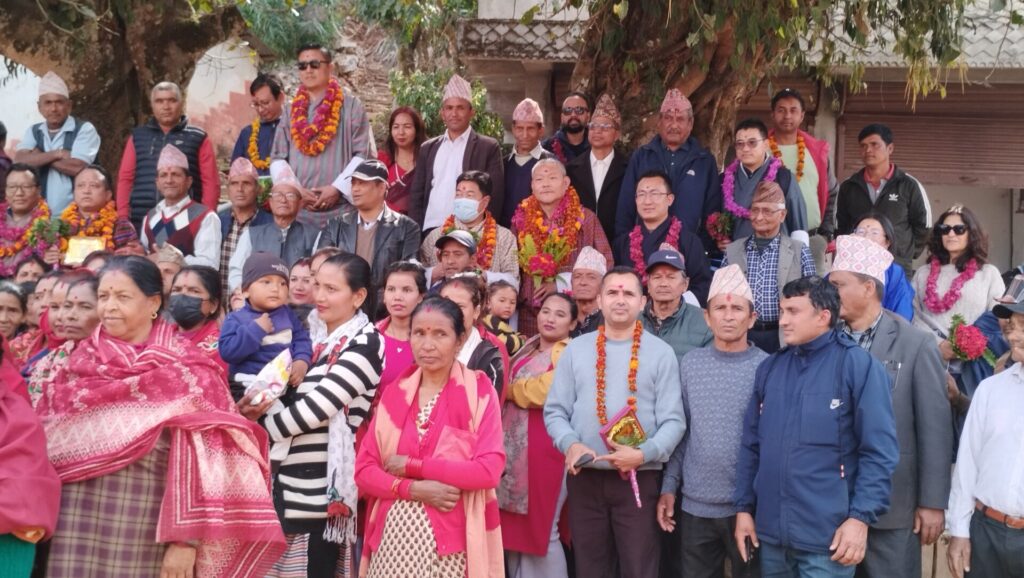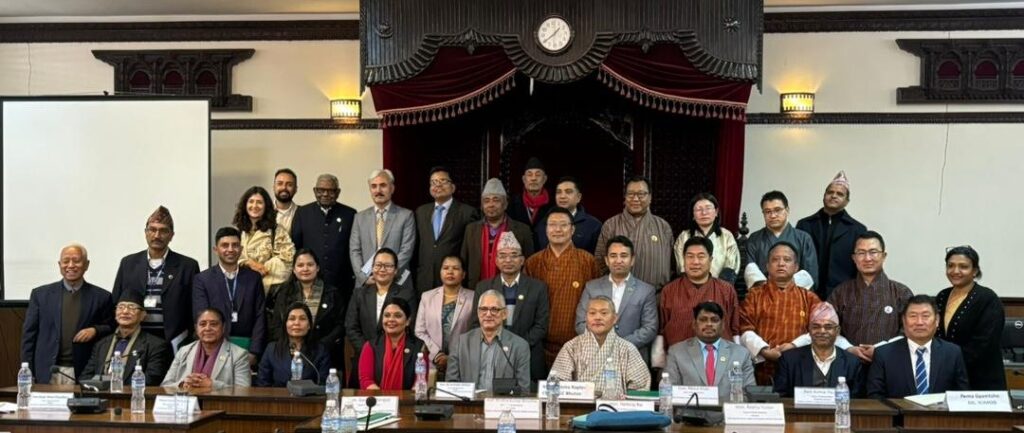
Understanding the challenges of rural outmigration in Nepal and Bhutan
/
Authors: Amina Maharjan, Becky Harwood
At the beginning of March, the SUCCESS team at ICIMOD Nepal welcomed a delegation from the Good Governance Committee (GGC) of the National Council of Bhutan for a 10-day learning exchange visit. The aim of the visit was to share ideas and practices, and to facilitate a dialogue on the issue of outmigration of people from rural areas leading to depopulation, underutilisation, and abandonment of farmlands. This is an issue faced by both Nepal and Bhutan and the visiting parliamentary delegation were interested to better understand Nepal’s strategies and policies in addressing these issues in the mountainous areas.
Outmigration, rural depopulation, farmland abandonment is a growing problem for many mountain areas in the Hindu Kush Himalayan (HKH) region. While migration and multi-local livelihoods is now the norm in the mountain livelihoods, this trend of complete abandonment of village – widespread in India and China – is relatively new in other HKH countries. As rural mountain areas are rapidly depopulating, the equally rapid urban growth in the region is chaotic and thus creates another challenge for the governments.
For the last two decades, migration debate in Nepal has centred around international labour migration to Gulf Coordination Council countries or cross border migration to India. But after the Census 2021 reported annual negative population growth rates in thirty-two hill and mountain districts, internal migration has generated interest among policy makers and practitioners. Similar debate is also ongoing in Bhutan with growing population in the Thimpu and Paro areas and rapidly declining population in rural and eastern parts of the country.
The GGC delegates met first with the Honourable Minister of the Ministry of Labour, Employment, and Social Security, where discussions focused on issues of international migration management policies, and the absence of those policies in both countries.
The visitors then spent several days on field visits to various locations, including Syangja, Lamjung, Pokhara, and Sindhupalchowk districts. They met and talked at length with local government representatives and community members to delve into the pressing issues of outmigration, farm abandonment and related challenges.

The local communities painted a vivid picture of the challenges they confront, attributing the prevalent outmigration to a confluence of factors. Economic opportunities and essential infrastructure, particularly in education and healthcare, were reported as glaringly inadequate. Furthermore, the shifting aspirations of the youth emerged as a significant driver behind the exodus from the area. Most of the local people interacting with the delegates had at least one family member in Pokhara, Chitwan or Kathmandu valleys.
Communities also described the mounting challenges besetting rain-fed agriculture, exacerbated by the impacts of climate change. Changes in the timing, intensity, and distribution of rainfall pose serious hurdles to agricultural sustainability. The local orchard owners recounted the devastation wrought by a disease outbreak that decimated their once-thriving orange orchards. Despite the enduring demand of their produce, the disease outbreak caused significant economic losses. Faced with the grim prospect of abandoned orchards and diminishing livelihoods, many villagers opted to seek livelihoods elsewhere, thus perpetuating the cycle of outmigration.
Having seen the reality on the ground, the team returned to Kathmandu to engage in discussions with members from two parliamentary committees of the House of Representatives of Nepal: the Agriculture, Cooperative, and Natural Resource Committee, and the Industry, Commerce, Labour, and Consumer Interest Committee. Various policy instruments pertinent to tackling the issue of outmigration, such as Land Use Policies and Agricultural Policies, were discussed in detail. Both parties agreed to continue the dialogue on the challenges of the effects of outmigration in the two countries.

The delegation also then met with the ICIMOD expert group to set out actionable strategies aimed at mitigating the challenge of rural outmigration and optimising the productive utilization of agricultural and other natural resources in rural regions. Dr. Ganesh Gurung, a distinguished expert on migration issues in the region and a research partner on SUCCESS, contributed valuable insights to these discussions.
This visit was part of the study being conducted by the Good Governance Committee on the issue of outmigration of people from rural areas to be presented to the National Council of Bhutan in May 2024. Dasho Phuntsho Rapten, Chair of the Good Governance Committee at the National Council of Bhutan, acknowledged the importance of the visit in helping the Committee to better understand the issue, and recognised that any effective solution demands a systemic perspective:
“We are beginning to grasp the intricate and dynamic nature of this issue and recognize that addressing this burgeoning concern requires systems thinking. Our prior desk study had not fully illuminated the complexity, but the firsthand experiences and engagements with Nepalese parliamentarians, government officials, and ICIMOD colleagues have provided us with invaluable insights to inform our policy recommendations.”
Photo Credits: Mona Sharma
Published
CLARE Projects
CLARE Partners

